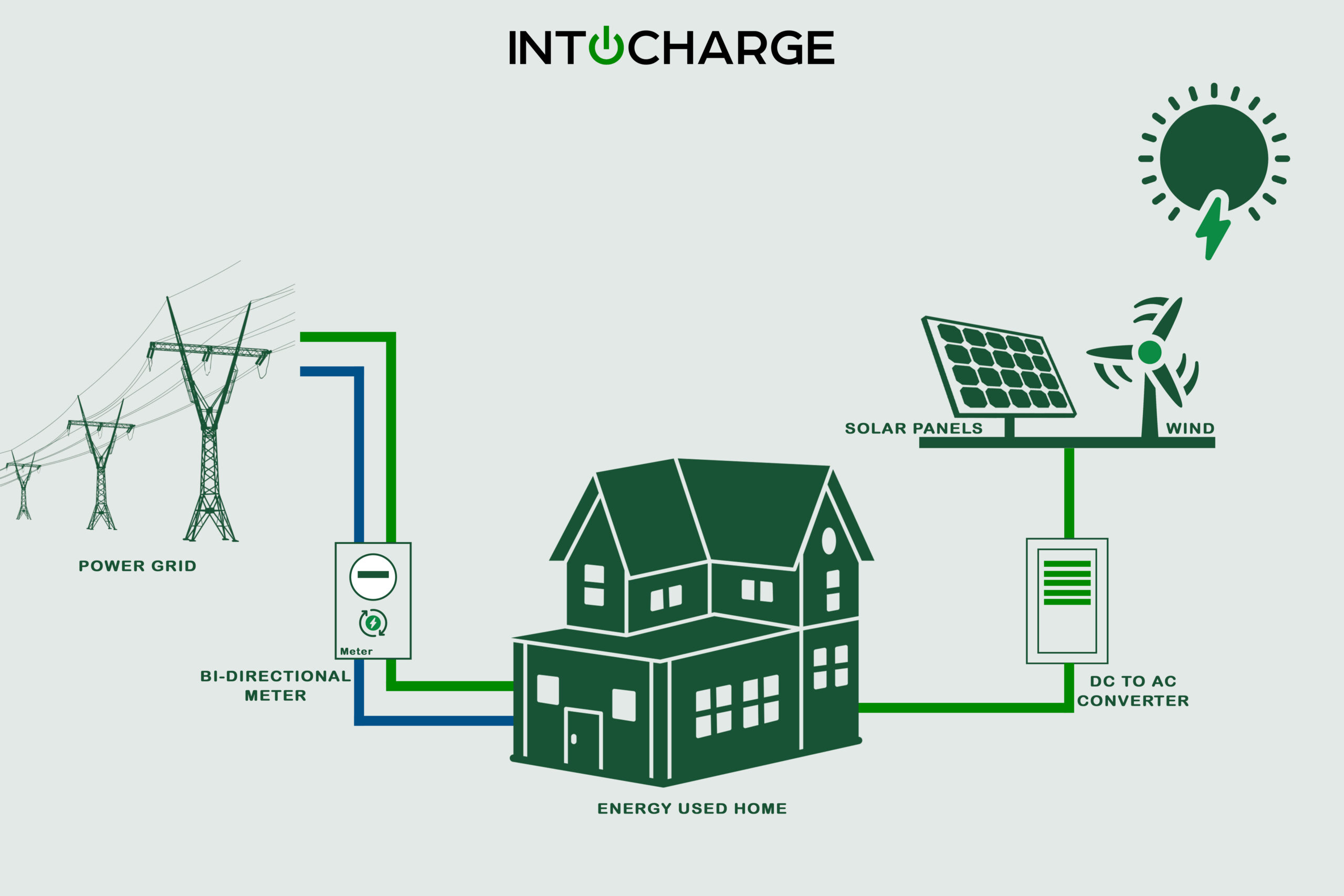
As Ontario continues its push toward renewable energy, net metering has become an essential program for homeowners and businesses looking to harness the power of the sun. This guide will walk you through everything you need to know about net metering in Ontario, including regulations, earning potential, and implementation strategies.
Net metering is a billing arrangement that allows you to generate your own electricity—typically through solar panels—and send any excess power back to the grid. In return, you receive credits on your electricity bill, which can be used to offset your energy costs when your system isn’t generating enough power, like at night or during cloudy days.
The goal is simple: reduce your electricity costs and promote renewable energy adoption across the province.
Ontario’s net metering program is governed by the Ontario Energy Board (OEB) under Ontario Regulation 541/05. Key regulations include:
Eligibility:
You must generate electricity from a renewable source like solar, wind, hydropower, or biomass.
Your system must be connected to the grid and meet technical requirements set by your local utility (The program is not available for an indefinite timeline or at all hydro utility providers, it’s to the discretion of hydro utility which can be determined during pre-consultation process with local hydro utility).
System Size Limits:
The maximum size of a net-metered system is less than 10 MW (Megawatts).
For most residential applications, systems range between 5-10 kW.
Credit Carryover:
Excess energy credits can be carried forward for up to 12 months.
If you don’t use the credits within this timeframe, they expire without any cash reimbursement.
No Cash Payments:
Unlike some feed-in tariff programs, net metering doesn’t pay you in cash. Instead, you receive bill credits that offset your electricity costs.
While net metering doesn’t provide direct payments, you can significantly reduce or even eliminate your electricity bills.
System Size: Larger systems generate more electricity, leading to more credits.
Energy Consumption: The more you consume, the more credits you’ll utilize.
Electricity Rates: As rates increase over time, the value of your credits also increases.
For an average Ontario household with a 5 kW solar system, savings can range from $1,200 to $1,800 per year on electricity bills.
Over the system’s lifespan (typically 25+ years), this could translate to $30,000–$45,000 in total savings.
Getting started with net metering is straightforward but requires careful planning:
Step 1: Assess Your Energy Needs
Review your past electricity bills to understand your average monthly consumption.
This helps determine the optimal size for your solar system.
Step 2: Install a Renewable Energy System
Work with a certified solar installer, such as INTOCHARGE to design and install your system.
The installer will ensure the system complies with local electrical codes and utility requirements.
Step 3: Apply for Net Metering
Submit an application to your local utility company, including technical details of your system.
The utility will review your application, conduct an inspection, and approve the connection.
Step 4: Connect to the Grid
Once approved, your system will be connected to the grid, and a bi-directional meter will be installed to track both the electricity you consume and the excess you export.
Step 5: Monitor and Optimize
Use monitoring tools (often provided by your installer) to track your system’s performance and optimize your energy usage patterns.
Lower Energy Bills: Offset your electricity costs with the power you generate.
Environmental Impact: Reduce your carbon footprint and reliance on fossil fuels.
Energy Independence: Less vulnerability to rising electricity rates.
Increased Property Value: Homes with solar systems often have higher resale values.
No Cash Payouts: Unused credits expire after 12 months, so sizing your system appropriately is crucial.
Upfront Costs: Solar installations require significant initial investments
Regulatory Changes: Policies can evolve, affecting long-term savings.
Net metering in Ontario offers a powerful opportunity for individuals and businesses to save on energy costs while contributing to a sustainable future. With rising electricity rates and increasing environmental awareness, there’s never been a better time to invest in renewable energy.